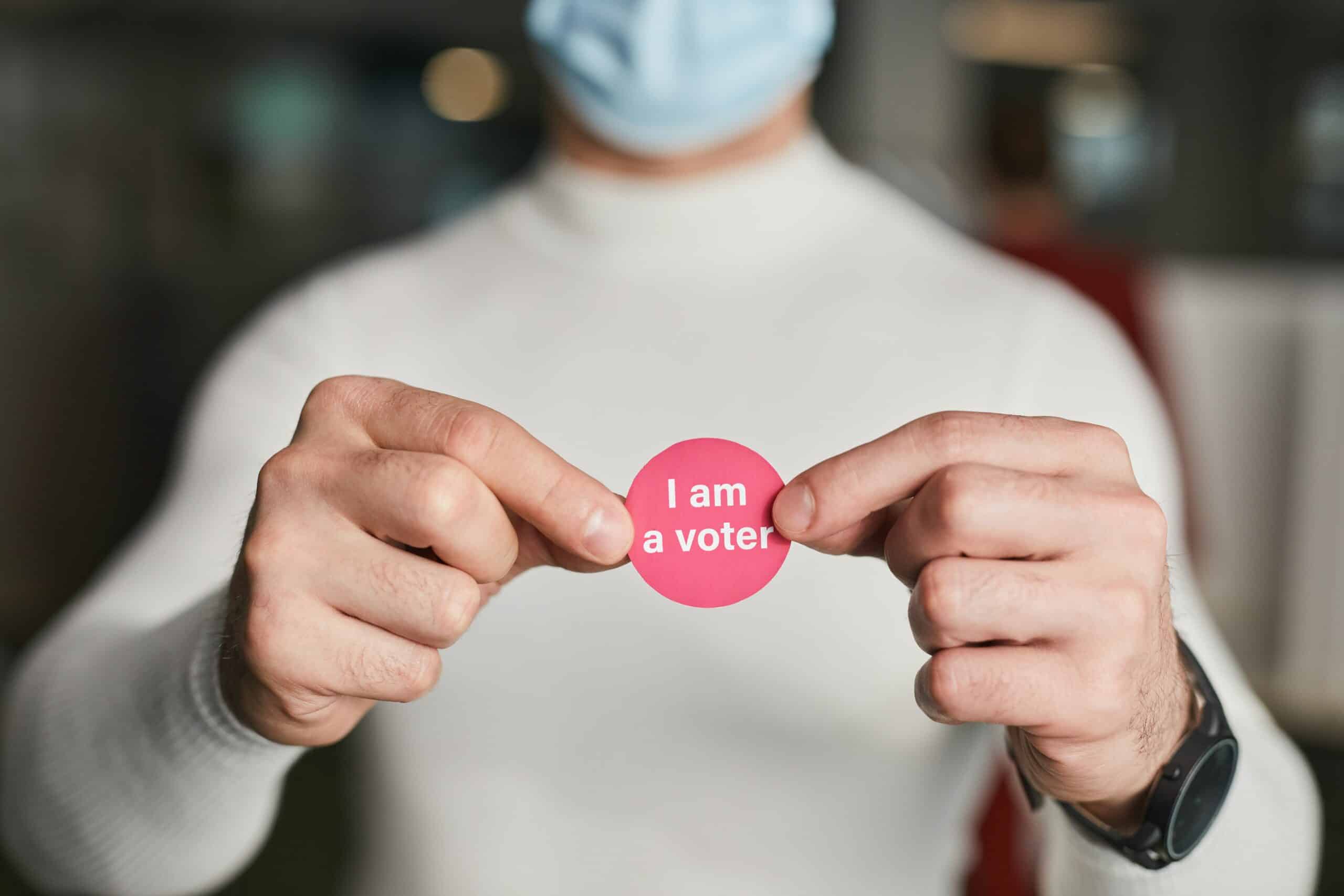As a new citizen in Australia, grasping the voting process is pivotal for your active participation in democracy. The Australian Ballot, often called the secret ballot, stands as a cornerstone of the Australian voting system. In this guide, I’ll illuminate the significance of the Australian Ballot and offer a step-by-step walkthrough on how to cast your vote in Australia employing this method.
Understanding the Australian Voting Law
Before we delve into the specifics of the Australian Ballot, let’s first familiarize ourselves with Australian voting laws. In Australia, voting is compulsory for all eligible citizens over the age of 18. This means that as a new citizen, it is your civic duty to vote in federal, state, and local government elections. Failing to vote without a valid reason can result in penalties, so it’s crucial to understand and comply with the voting regulations.
What is an Australian Ballot and How Does it Work?
The Australian Ballot, introduced in the 1850s, is a cornerstone of Australian democracy, ensuring the secrecy and fairness of elections. Unlike open voting systems where people publicly declare their choices, this method enables voters to cast their ballots privately, free from external influences.
Using the Australian Ballot is straightforward. On election day, you will receive a ballot paper listing all the candidates. In a private voting booth, you can mark your preferred candidate using a pencil. After marking your vote, you will fold the ballot paper to conceal your choice and place it in a sealed ballot box. This simple process guarantees the secrecy of your vote and ensures that it is counted accurately.
Step-by-Step Guide on How to Vote in Australia
- Before Election Day: Make sure you are enrolled to vote. You can check your enrollment status on the Australian Electoral Commission (AEC) website or by contacting the AEC directly. If you are not enrolled, you will need to complete an enrollment application to be eligible to vote.
- Election Day: Locate your designated polling place. The AEC will provide information on where to vote based on your residential address. Polling places are usually open from 8 a.m. to 6 p.m., but it’s advisable to check the specific opening hours for your location.
- Check-In: Upon arrival at the polling place, you will need to provide your name and address to the polling officials. They will check your details against the electoral roll and mark your name as having voted.
- Receiving the Ballot: After checking in, you will be given a ballot paper by the polling officials. Take your ballot paper to a private voting booth.
- Marking Your Vote: Use the pencil provided to mark your preferred candidate by placing a ‘1’ next to their name. You can choose to number all the candidates in order of preference, but marking ‘1’ is sufficient to cast a valid vote.
- Folding and Depositing the Ballot: Once you have marked your vote, fold the ballot paper to conceal your choice. Proceed to the designated ballot box and place your folded ballot paper inside. Ensure that it goes into the ballot box securely.
- Completing the Process: You have successfully cast your vote using the Australian Ballot. Feel proud of exercising your democratic right!
Most Common Ways to Vote
While the Australian Ballot is the most widely used voting method in Australia, there are other options available for certain circumstances. Let’s explore the four common methods of voting in Australia:
Pre-poll Voting
Pre-poll voting allows individuals to vote before Election Day at designated early voting centers. This option is suitable for those who cannot vote on the scheduled Election Day due to travel or other commitments. You will need to provide a valid reason for pre-poll voting, such as being outside your electoral division on Election Day.
Postal Voting
Postal voting is available for those who are unable to attend a polling place on Election Day or during the pre-poll period. To vote by post, you will need to apply for a postal vote through the AEC. Once approved, you will receive a ballot paper in the mail, which you can complete and return via post before the specified deadline.
Absent Voting
Absent voting is for individuals who are away from their enrolled electoral division on Election Day. If you are unable to vote at your designated polling place, you can visit any polling place within your state or territory to cast your vote. Absent votes are counted separately but still contribute to the overall election results.
Provisional Voting
Provisional voting is available when your name cannot be found on the electoral roll at the polling place. This may occur if you recently moved or if there was an error in the enrollment process. Provisional votes are scrutinized after the election to determine their validity and are only counted if your eligibility to vote is confirmed.
Tips for New Citizens on How to Vote
Navigating the Australian voting process as a new citizen can be intimidating, but with these tips, you’ll feel more confident:
- Understand the voting requirements: Familiarize yourself with the Australian voting law and the specific requirements for your state or territory. This will ensure that you meet all the necessary obligations and avoid any penalties.
- Enroll to vote: Ensure that you are enrolled to vote before the enrollment deadline. Enrolling allows you to participate in elections and have a say in shaping Australia’s future.
- Research the candidates: Take the time to research the candidates running in your electorate. Understanding their policies, values, and track record will help you make an informed decision when marking your vote.
- Seek assistance if needed: If you have any questions or need assistance during the voting process, don’t hesitate to contact the polling officials at your designated polling place. They are there to help and ensure that your voting experience is smooth.
- Stay informed: Keep yourself updated on the latest news and developments regarding elections and the political landscape in Australia. Being informed will enable you to make educated decisions and actively participate in the democratic process.
FAQ about the Australian Ballot and Voting in Australia
Q: Do I have to vote in Australia if I am a new citizen?
A: Yes, voting is compulsory for all eligible citizens in Australia, including new citizens. It is a civic duty that ensures you have a voice in the democratic process.
Q: What happens if I don’t vote?
A: If you fail to vote without a valid reason, you may be subject to penalties. These penalties can vary depending on the state or territory but typically involve an exemplary or other consequence.
Q: Can I vote in Australia if I am not enrolled?
A: No, you must be enrolled to vote in Australia. Enrolling ensures that your details are included in the electoral roll and that you are assigned to the correct electoral division.
Q: Can I vote in Australia if I am not an Australian citizen?
A: No, only Australian citizens are eligible to vote in federal, state, and local government elections. Permanent residents and temporary visa holders are not eligible to vote.
Q: Can I vote online in Australia?
A: No, voting in Australia must be done in person at a designated polling place, through pre-poll voting, postal voting, or provisional voting.
Resources and Tools to Help New Citizens Master the Australian Ballot
To further assist you in mastering the Australian Ballot and the voting process in Australia, here are some helpful resources and tools:
- Australian Electoral Commission (AEC) website: The AEC website is a comprehensive resource that provides information on voter enrollment, polling locations, and voting procedures in Australia.
- AEC Voter Education Materials: The AEC produces educational materials, including brochures and videos, to help citizens understand the voting process. These resources are available on the AEC website and can be downloaded or viewed online.
- Local Council or Electoral Commission Offices: Local council offices and electoral commission offices often provide information sessions or workshops for new citizens to learn about the Australian voting system. Check with your local council or electoral commission for any upcoming events.
- Community Organizations: Many community organizations, particularly those focused on supporting new citizens, offer workshops or information sessions on voting in Australia. Reach out to these organizations in your area to see if they can provide guidance and assistance.
Importance of Voting and Being an Active Participant in Democracy
Voting in Australia extends beyond a mere right; it’s a legal obligation and a potent instrument for molding the nation’s destiny. When you cast your ballot, you actively contribute to the democratic process, ensuring your voice resonates and your interests find representation. Participation in elections empowers you to influence policies, elect leaders, and hold them accountable.
Active citizen engagement is the lifeblood of democracy. By educating yourself, staying well-informed, and exercising your voting right, you become an empowered stakeholder in Australia’s democratic terrain. Your vote wields substantial potential, so seize the chance to express your views and ensure your voice resonates throughout the corridors of power.
Take charge of Australia’s future. As an active participant in democracy, your vote is your voice in the upcoming elections. Prepare to exercise your democratic privilege and contribute to the nation’s advancement.
Empowering New Citizens to Exercise Their Voting Rights in Australia
New citizens in Australia, it’s crucial to master the voting process for active democratic participation. This guide covers understanding the Australian Ballot, familiarizing with voting laws, and following a step-by-step approach to confidently cast your vote.
Voting isn’t just a duty; it’s a privilege to shape your community, state, and nation. Embrace responsibility, educate yourself on candidates’ policies, and make informed choices. Your voice matters in shaping Australia’s democracy.
Let your voice echo in strengthening democracy. Exercise your right, vote, and mark your calendar for Election Day. Be an active participant in shaping Australia’s future.


